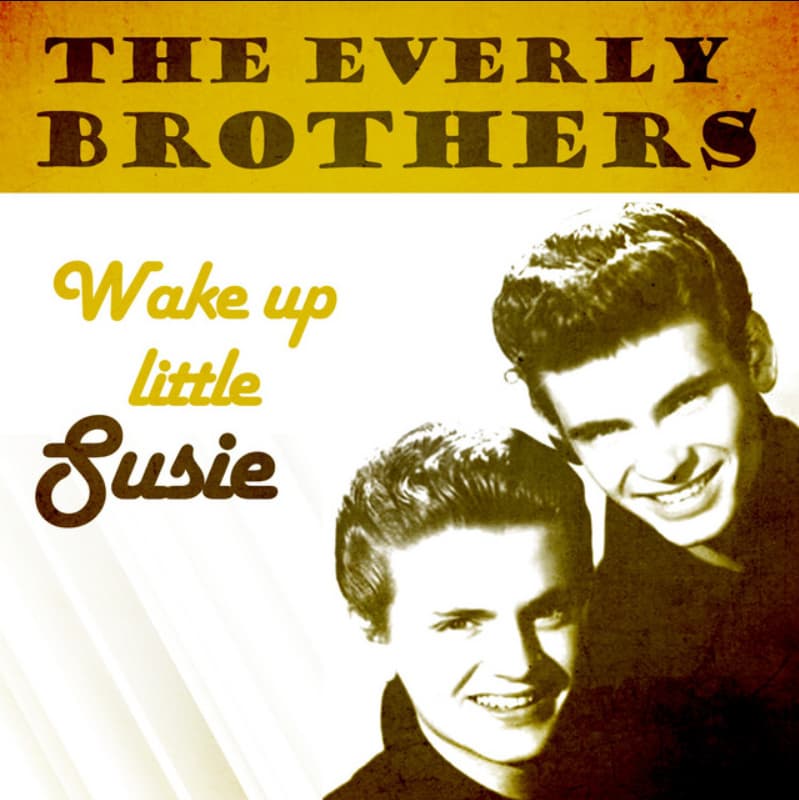
The Everly Brothers – “Wake Up Little Susie”: A Chart-Topping Controversy
“Wake Up Little Susie” by The Everly Brothers is more than just a hit song from the late 1950s—it’s a piece of music history that captures the spirit of its time while also challenging the social norms of the day. Released in 1957, this song quickly became a sensation, climbing to the No. 1 spot on the Billboard Pop chart as well as the Cash Box Best Selling Records chart. The Everly Brothers, with their distinct harmonies and clean-cut image, managed to turn what was considered a suggestive subject into one of the most memorable tracks of the era.
The song’s success wasn’t without its share of controversy. At a time when radio was a dominant force in shaping public opinion and culture, “Wake Up Little Susie” found itself at the center of a moral debate. The lyrics, which told the story of a young couple who accidentally fall asleep at a drive-in movie and wake up past curfew, were seen as scandalous by some. In fact, the song was banned from Boston radio stations due to its supposedly provocative content. This, of course, only added to the song’s allure, as teenagers of the time were drawn to the very thing that their parents were trying to keep them away from.
Despite—or perhaps because of—the controversy, “Wake Up Little Susie” resonated with a wide audience. It wasn’t just a pop hit; it was also a crossover success, spending seven weeks atop the Billboard country chart and reaching No. 2 on the UK Singles Chart. The song’s appeal was universal, tapping into the fears and excitements of young love, the thrill of rebellion, and the innocence of a bygone era.
The premise of the song is simple yet relatable. The narrative unfolds from the perspective of a high school boy who is out on a date with his girlfriend, Susie. They go to a movie, only to fall asleep and wake up hours later, well past her 10 o’clock curfew. The boy’s anxiety about what others will think—especially Susie’s parents—is palpable. The fear of losing their reputations reflects the societal pressures of the 1950s, where appearances and moral standing were of utmost importance.
The Everly Brothers were able to convey these themes through their signature close harmonies, which were both soothing and haunting. The upbeat tempo of the song contrasted with the underlying tension in the lyrics, creating a dynamic that kept listeners hooked. It’s no wonder that decades later, in 2017, the 1957 recording of “Wake Up Little Susie” was inducted into the Grammy Hall of Fame.
The legacy of “Wake Up Little Susie” is undeniable. It was ranked at No. 318 on Rolling Stone magazine’s list of “The 500 Greatest Songs of All Time,” a testament to its enduring popularity and cultural significance. The song not only captured the zeitgeist of the 1950s but also set the stage for future generations of music that would continue to push the boundaries of what was considered acceptable.
In the end, “Wake Up Little Susie” is a reminder of a simpler time, yet one fraught with its own set of challenges. It’s a song that has stood the test of time, continuing to be celebrated for its catchy melody, relatable story, and the way it managed to walk the fine line between innocence and controversy.